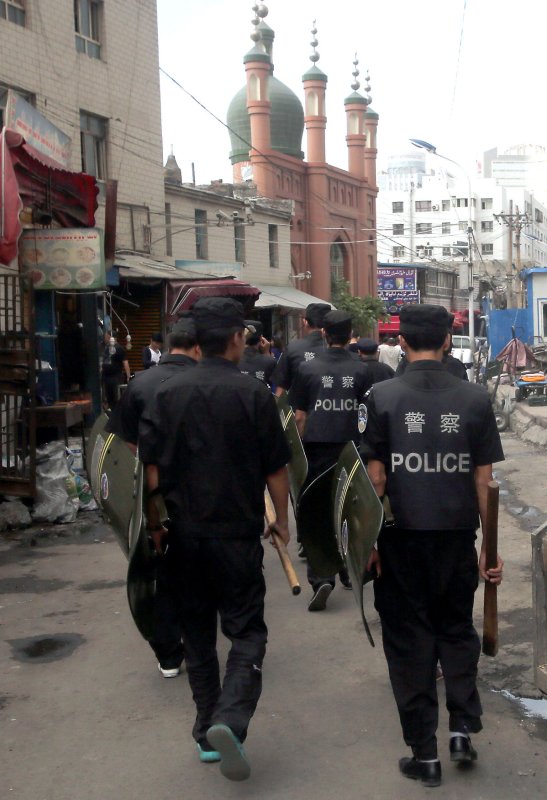The Chinese government has denied the accusations of repression its Muslim populations, saying its actions in Xinjiang are to counter terrorism and prevent radicalization. Photo by Stephen Shaver/UPI |
License Photo
Oct. 8 (UPI) -- U.S. Secretary of State Mike Pompeo on Tuesday announced visa restrictions on Chinese officials accused of being involved in the Asian nation's "detention and abuse" of its Muslim minority population.
In a statement, Pompeo said the visa restrictions are targeting those complicit in China's "highly repressive campaign" against Uighurs, ethnic Kazakhs and other Muslim minority groups in the northwestern Xinjiang Uighur Autonomous Region.
"China has forcibly detained 1 million Muslims in a brutal, systematic campaign to erase religion and culture in Xinjiang," Pompeo said on Twitter. "China must end its draconian surveillance and repression, release all those arbitrarily detained and cease its coercion of Chinese Muslims abroad."
He said that China has been systematically repressing its Muslim population through mass detentions at internment camps, pervasive high-tech surveillance and strict controls on expressions of cultural and religious identities, among other human rights violations.
According to the United States 2018 report on human rights abuses in China, Muslims at the interments camps have been subjected to arbitrary killings, forced disappearances, torture, life-threatening prison conditions and a slew of other abuses.
The visa restrictions, which were also imposed against the family members of complicit officials, came a day after the United States announced export restrictions on 28 government security bureaus and large tech companies for their involvement in aiding China in its repression of Muslims in Xinjiang,
However, China has repeatedly denied the accusations of committing human rights abuses in the region, claiming the camps and surveillance measures are to counter terrorism and extremism through "de-radicalization."
On Tuesday, Foreign Ministry spokesman Geng Shuang told reporters during a regular press briefing that China "deplores and firmly opposes" the accusation as "it does not have the so-called human rights issues claimed by the U.S."
The United States uses the excuse of human rights to interfere with its internal business while "seriously" violating the norms of international relations, Shuang said.
"I must point out that Xinjiang affairs are purely China's internal affairs that allow no foreign interference," he said. "... The accusations by the U.S. side are merely made-up pretexts for its interference."
The only countries criticizing China's treatment of its Muslim populations are those biased towards the nation's development, he said.
The United States has recently ratcheted up pressure on China over its treatment of Muslims, calling the country out during last month's U.N. General Assembly and holding a conference with 30 other nations and 20 nonprofit organizations calling on the intergovernmental organization to conduct an investigation into the crackdown.
The U.S. moves against China also came days before the two countries were scheduled to return to the negotiating table on Thursday.















